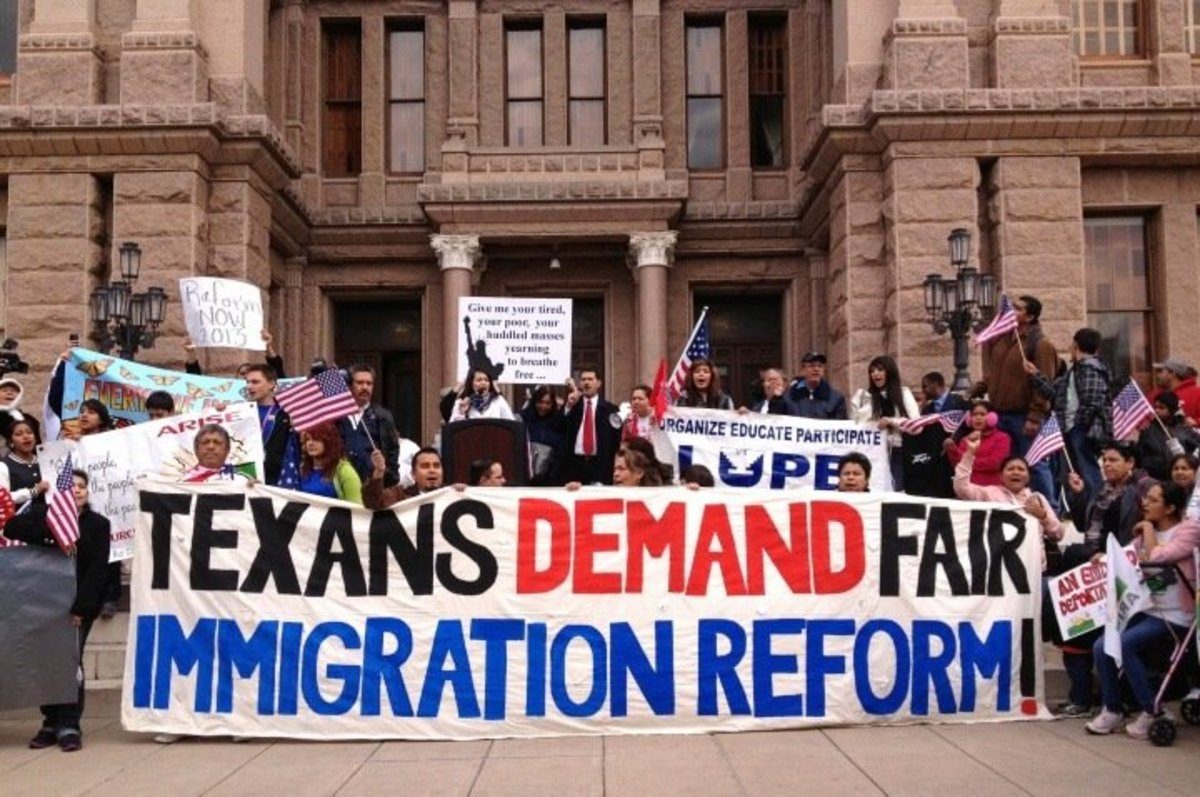EL PASO — Jorge Dominguez, an attorney, arrived early Wednesday at his small office in the Las Americas Immigrant Advocacy Center to monitor discussions about S.B. 4, the Texas law allowing state officials to arrest migrants crossing into the country illegally.
Dressed in a sweatshirt and jeans, Dominguez attentively listened as attorneys debated. His attention peaked when a judge questioned the Texas solicitor general about potential scenarios if officers bring individuals to a port of entry but federal authorities decline to accept them. Dominguez was taken aback by the uncertain response.
The Texas counsel’s frequent ‘I don’t know’ responses to crucial questions are deeply concerning,” Dominguez remarked.

Even prior to the latest legal developments, the implementation of Senate Bill 4 in Texas had been fraught with confusion and uncertainty. However, anxiety and apprehension surrounding the contentious law have escalated significantly as various stakeholders await the outcome of a court battle that has become increasingly complex this week.
“Some people say we could face deportation. Others warn of arrest if we step out of this shelter,” expressed Maria Alejandra Seijas García, a 23-year-old Venezuelan migrant residing in an El Paso refuge. “It feels unjust to me. Shouldn’t we be safeguarded if we’re in the asylum process?”
While the Supreme Court briefly permitted the law to be enforced on Tuesday, the U.S. Court of Appeals for the 5th Circuit swiftly blocked its implementation later that day. Oral arguments were presented on Wednesday, but a ruling has not yet been issued. The law criminalizes illegal entry into the country at the state level, empowering state and local law enforcement to apprehend suspected individuals and return them to ports of entry. Originally slated to go into effect on March 5, the law’s fate remains uncertain amidst ongoing legal proceedings.

Governor Greg Abbott spearheaded the most assertive border initiative last year, a move driven by his staunch opposition to President Biden and his immigration policies. With Biden’s Republican predecessor, Donald Trump, looming as a formidable opponent in the November presidential election, Republicans view immigration as one of Biden’s most glaring vulnerabilities.
However, the enforcement strategy of the Texas law remains a contentious issue, particularly among law enforcement agencies tasked with implementing it. In recent days, police departments statewide have expressed reservations about assuming immigration enforcement duties. Some city officials have explicitly discouraged officers from executing arrests under the new legislation.
El Paso Mayor Oscar Leeser stated on Wednesday that his office has been closely monitoring the legal developments but intends to maintain the current operational approach of the city’s police department, regardless of the legal outcome.
Attorney Jorge Dominguez found himself immersed in the legal wrangling over S.B. 4, the Texas law empowering state officials to detain migrants crossing into the U.S. illegally. As discussions unfolded in court, Dominguez, sporting a casual sweatshirt and jeans, was taken aback when the Texas solicitor general couldn’t provide clarity on key enforcement scenarios.
“The uncertainty from the Texas counsel is concerning,” remarked Dominguez, reflecting the widespread confusion surrounding the law’s implementation. Even before the recent legal developments, S.B. 4 had sowed confusion and unease, with fears intensifying among local leaders, law enforcement agencies, civil rights advocates, and migrants awaiting a decisive court ruling.
The Supreme Court briefly allowed the law to take effect on Tuesday, only for the U.S. Court of Appeals for the 5th Circuit to block its enforcement hours later. The law criminalizes illegal entry into the country at the state level, empowering state and local authorities to detain and return suspects to entry points. Originally set to go into effect on March 5, its enforcement remains in limbo amid ongoing legal battles.

Governor Greg Abbott championed the law as a bold border security measure, aligning with Republican rhetoric that has framed immigration as a key vulnerability for President Biden. However, questions persist over how the law will be executed, with law enforcement agencies grappling with their roles in immigration enforcement. Some city officials, like El Paso Mayor Oscar Leeser, have opted to maintain existing police protocols regardless of the legal outcome.
Despite the uncertainty, Texas Republicans, including Abbott, remain steadfast in their support for S.B. 4. Abbott affirmed Texas’s resolve to apprehend individuals crossing the border illegally, even in the absence of the law’s enforcement. However, the law’s potential enforcement has prompted criticism from high-profile Democrats, immigrant advocates, and community leaders, who fear it could lead to racial profiling and unjust treatment of immigrants.
For migrants like Lendys Fernandez and Maria Alejandra Seijas García, the looming specter of S.B. 4 has already cast a shadow of uncertainty and fear. Fernandez recounted how concerns over the law led to her driver canceling their appointment with a local doctor, highlighting the tangible impact of the legal battle on vulnerable populations. As they grapple with the law’s implications, migrants like Seijas García continue to navigate an uncertain and perilous journey in their pursuit of asylum in the United States.

